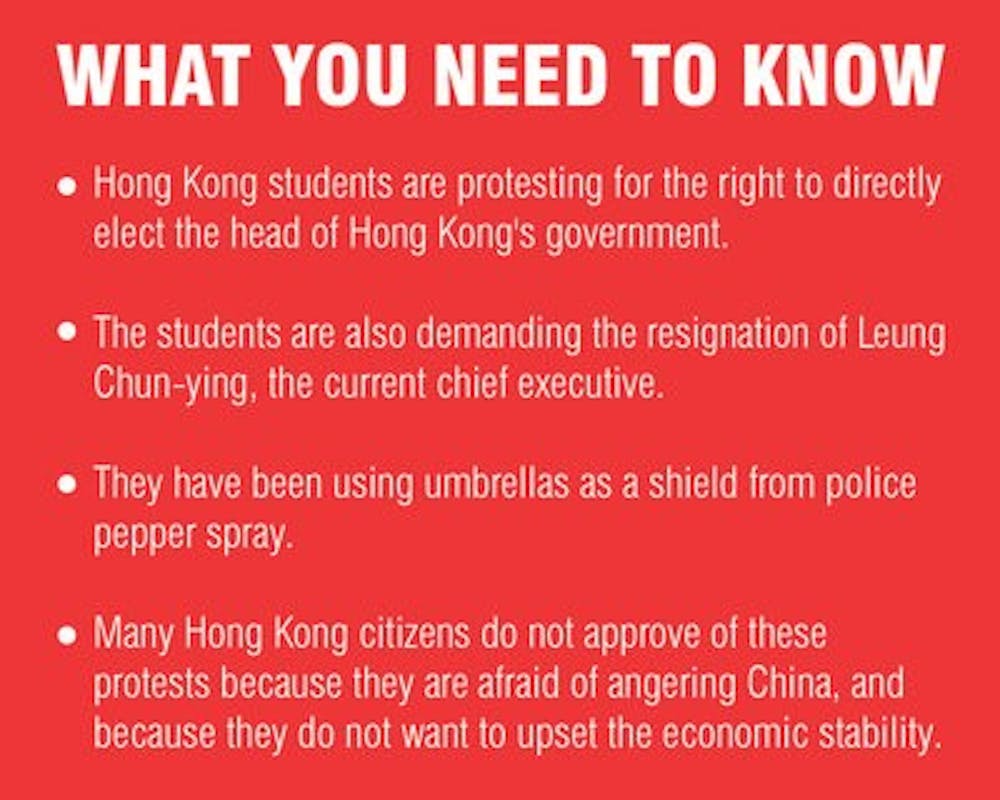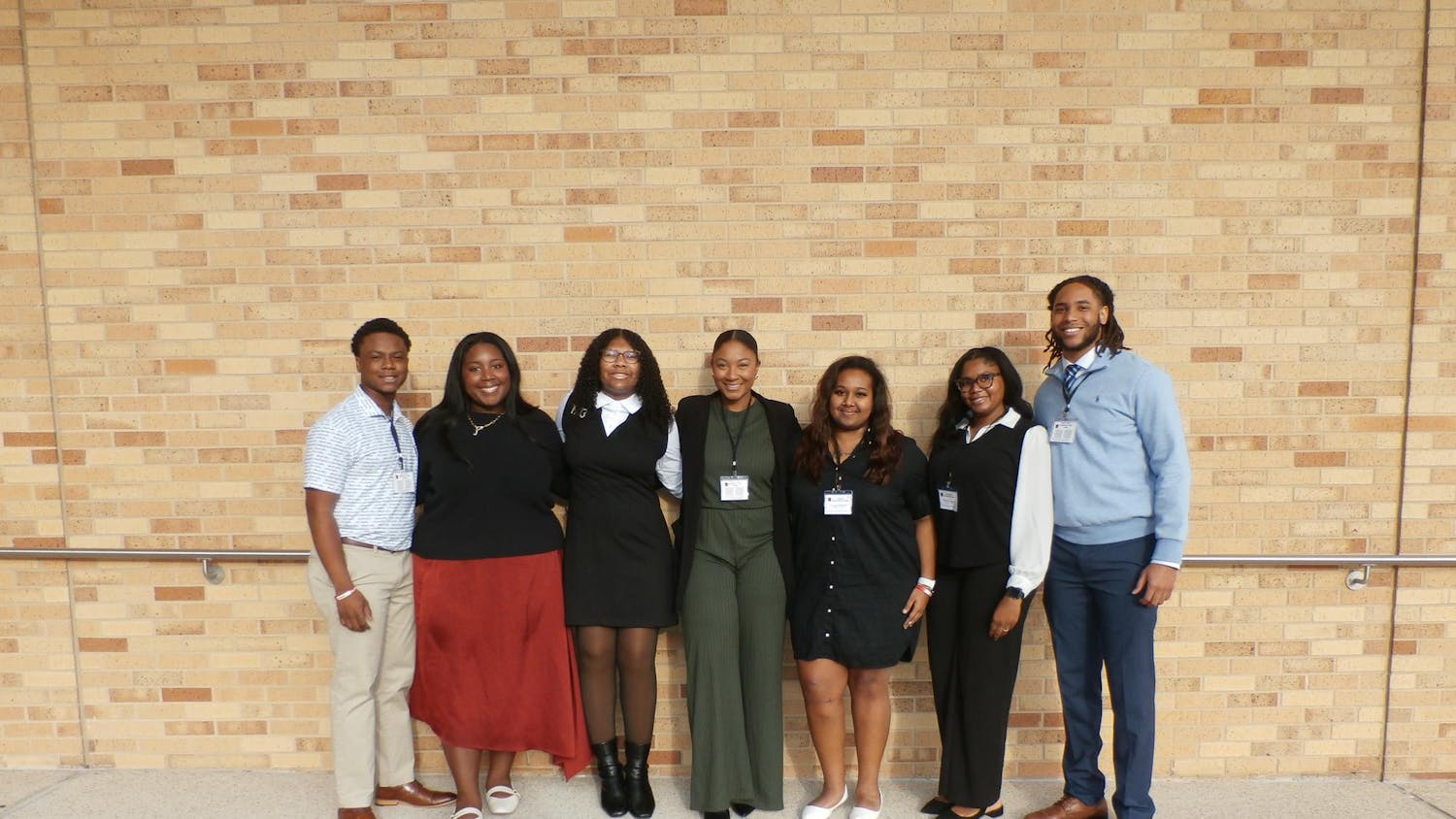In Hong Kong Central, China, people fill the streets, blocking traffic and stealing the attention of one of China's most urbanized cities.
They don't fight the riot police who have come to drive them away, and they recycle the small amount of trash they've generated in the week-long occupation of Hong Kong's most public areas.
The protest is called The Umbrella Revolution, because protestors used umbrellas against tear gas, pepper spray and other crowd breakers used by Hong Kong riot police, while protesting
Beijing's communist government.
"It's an aging society in an economic downturn," said professor of sociology Ariana Gaetano. "I think young people are probably feeling under so much stress they don't know what their future is going to hold, and their society is hanging all on them to generate the welfare for society. China has been having tens of thousands of protests annually for the last seven or eight years."
The movement began as Occupy Central with Love and Peace.
The movement is a civil disobedience campaign created by Benny Tai Yiu-Ting, law professor at the University of Hong Kong.
The objectives of the campaign were initially to oppose the Chinese electoral process in which candidates are selected by a 1,200-person committee based in Beijing.
A student-initiated referendum against Beijing's candidate approval process was the spark that began the protests in September.
A New York Times article said the referendum denounced Hong Kong chief executive C.Y. Leung in favor of the Beijing-centric process.
One of the rallying cries of the movement is "689," the alleged number of votes incumbent Leung amassed during his 2012 election.
"C.Y. Leung is going to be the fall guy, regardless," said Daniel McGowin, Auburn employee who studies Asia and China. "He's already become the focal point of the demands by the students to step down. He's at least trying to engage the students, but he's refusing to step down. If he's not the fall guy from the Chinese perspective, he is from the students perspective."
McGowin said the government might try to minimalize the occupation by electing a new chief executive, but protests will likely continue until citizens of Hong Kong are allowed their own free elections in the country.
"I think in the end the (people of Hong Kong) will be granted universal suffrage," McGowin said. "Eventually China knows that those 50 years will be up and Hong Kong, by the treaty and by the agreement with Britain, will be folded in. Of course, the Western hope is that China will give in and not turn Hong Kong into a communist state, but China is waging a war of attrition."
When the United Kingdom handed over control of Hong Kong to the People's Republic of China in 1997, one of the stipulations was social, economic and political relations would remain unchanged for 50 years.
That provision has been in jeopardy since 2006, when Xi Jinping ascended to the head position of the Chinese government, becoming more hard-lined with conservative political policies.
"Xi Jinping is definitely hard-nosed," Gaetano said. "This guy has totally turned the tide in China by cracking down on those weaker minorities."
As the protests enter their second week, support for the occupation has begun to falter in the face of stalled negotiations and an increasing number of detractors within the civilian population.
BBC reported Monday, Oct. 6, there remained approximately more than 1,000 protestors occupying three separate locations.
"The Chinese government has been very clever about how they handle this situation, especially regarding its public image," said Ted Becker, political science professor. "They're brutal and ingenious.
According to Becker, with elections for the chief executive position not until 2017, it would seem this movement will go the same route.
Do you like this story? The Plainsman doesn't accept money from tuition or student fees, and we don't charge a subscription fee. But you can donate to support The Plainsman.





